"People" If life is looming: Interview with Huang Tingyu "Invisibility"
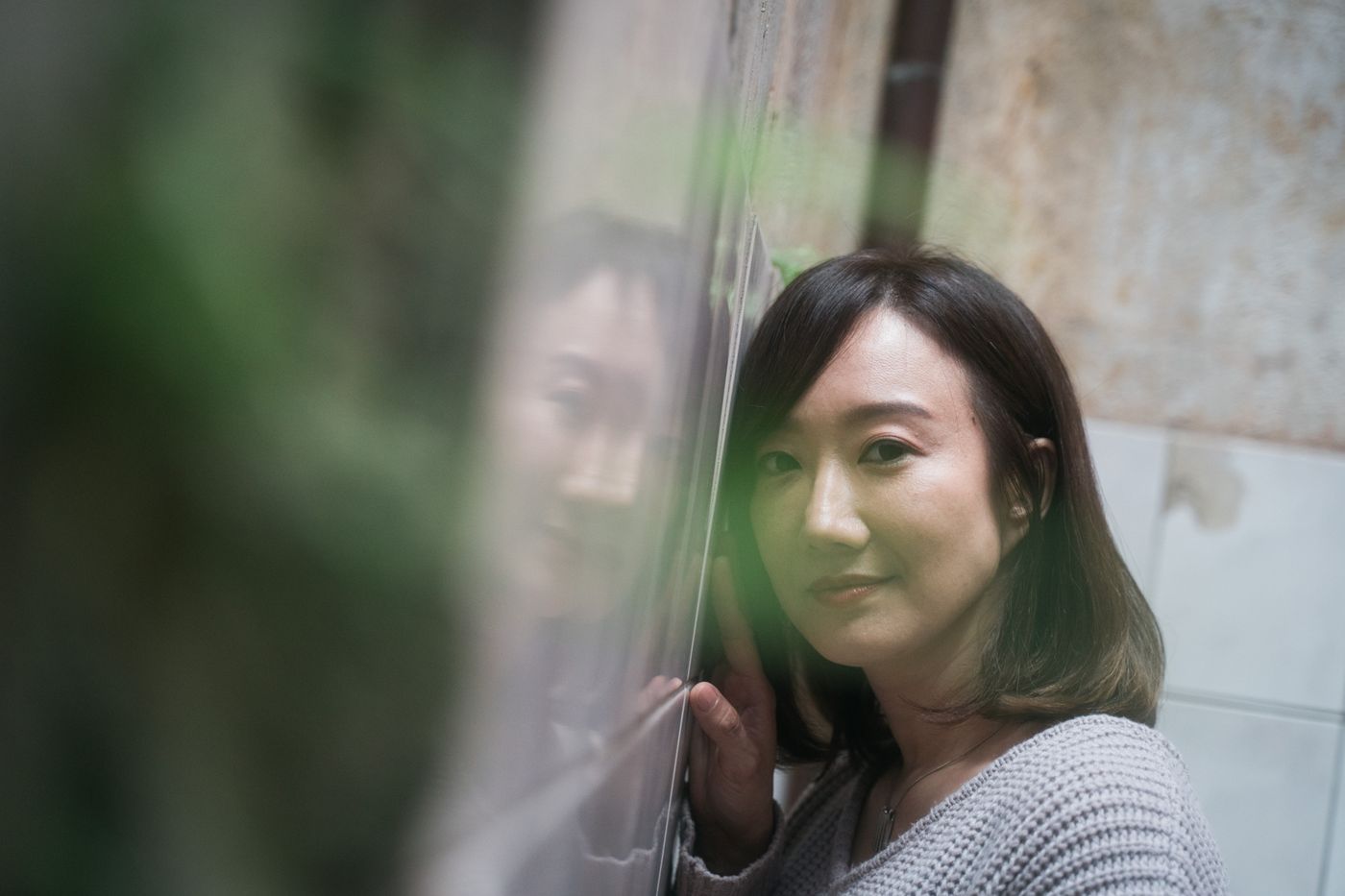
Writer| Lv Peiling (literary worker)
Photography| Tang Zuoxin
It’s hard not to be a little curious, what would Huang Tingyu wear if he lives next to Jucheng Department Store in Hsinchu, and in his second prose "Invisibility", he wrote with pride that "the whole city is my dressing room" Come to the appointment dressed like this. In her prose, she has a blunt side, especially when she does not avoid talking about material desires, money and goods, and the rough edges of interpersonal boundaries. She wrote in a tone that seemed to be casually chatting with a friend: "I have fed a large part of my salary to this mountain of clothes."
During the interview, Huang Tingyu sat down neatly, and quickly pulled out the pre-written answer outline from the bag. "I'm a little afraid that I'll forget." She smiled kindly. Huang Tingyu, who originally taught at Hsinchu Girls' High School, spoke with the strict discipline of an educator. This day, she was wearing a simple, but comfortable and soft lotus root purple sweater with a silver necklace: "Although I like shopping for clothes, I also know that some people are used to dressing more luxuriously on formal occasions. But how to say What about it? On important occasions, I still get used to wearing what I am familiar with, and I feel more secure.” She described that her wardrobe is now a bit like popcorn overflowing a bucket, which is very explosive. Those who haven't worn or can't fit, have backflow? OK and reluctant to lose. Obviously don't follow the route of breaking away from it.
➤ Between utterances
When the seasons change, will you go shopping for clothes regularly? Not really. She thought about it. Tianbu Clothing has been integrated into Huang Tingyu's one-day life circle in Jucheng, where he works hard, has a family and raises children, and his personal teaching career is about to reach the 20-year mark in a blink of an eye. After get off work, fitness, massage, party, eating and grocery shopping are the most common daily routines: everything depends on the mood at the moment, and everything can be arranged.
"There are more and more entertainment venues and bookstores," she added. Although the outside world jokingly calls Hsinchu a gourmet desert, the locals always have several pocket lists. The first episode of "Invisibility", "Dressing Room", projected not only the private wardrobe of the narrator, but also reflected the material conditions of the Windy City: I once received all kinds of items sent from the counter in Jucheng during the week of my birthday. Invitation letters and exchange vouchers, taking turns to accept the blessings of the cabinet elders and sisters, and carrying bags full of (not so practical) small gifts in their hands.
why not? Huang Tingyu asked rhetorical questions in his prose. I gave myself to the city, and the city gave me back. This kind of picture may be regarded as "tacky", but she pointed it out without losing humor. Let the scented candles burn, and the fireworks bloom grandly for a few seconds, isn't it also pleasant? After all, as long as you consume, you can become the other party's VIP or even VVIP, which is not always such a good thing in this world. After a transaction is over, turn around and forget each other in the rivers and lakes. Her "manifest" and "hidden" are the exterior and interior of each other—handling, weighing, selecting, and drawing a safe distance. This is self-preservation and politeness. Sometimes I hide my clumsiness to cover up my ugliness, and sometimes I want to escape completely. In another prose "Matte", she used calm and low-key matte as an imagery to accurately describe the transition of "hidden" mood: a little luminous and not too luminous, a little existent and not quite there.
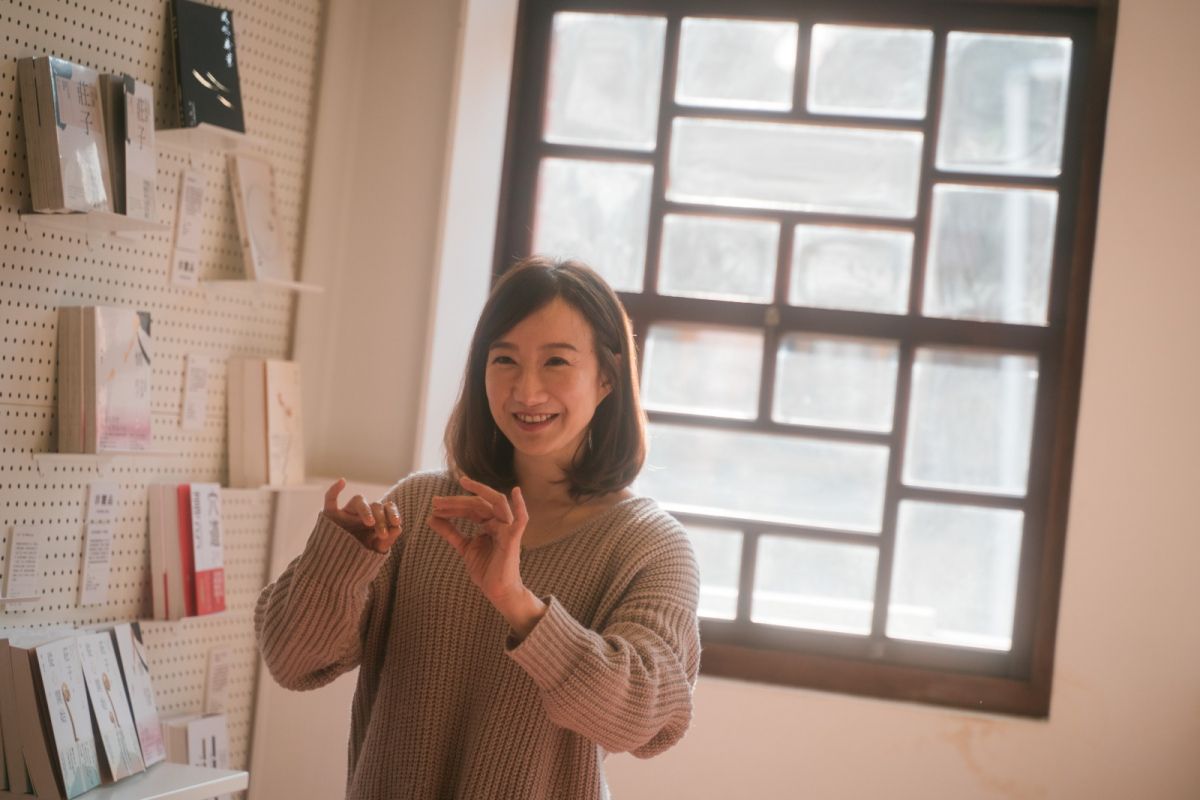
Compared with her who was more fond of colorful colors in her early years, her style has obviously changed: "After all, you may not be able to achieve your original ideal state. It is very likely that you will walk around? This is some kind of It is a life lesson to constantly balance and regain a firm footing," Huang Tingyu said. And sometimes it is a detour process, which will bring new scenery. She recalled that she was never used to being "the most conspicuous one", but after becoming a teacher, she had to get used to speaking on the podium, and after becoming a writer, she had to speak in words.
If you read the entire "Invisibility Art", you will probably see many winding paths. In each concise and concise prose structure, Huang Tingyu also summoned many texts of his own thoughts and feelings from ancient and modern China and abroad as a supplement and extension. "To me, these quotations are a bit like the 'transition' effect of the camera fading in and out, and also cover misinterpretation, misreading and whimsy." It seems that a kind of experiential world is suddenly expanded——Huang Tingyu and We shared that my sister's impression after reading it was: "After reading it, I seem to be drawn to another place by me."
Surrounding the narrator's body and space, Huang Tingyu's prose seems to draw a slanting shadow in broad daylight. At some moments, it feels as if the deeper state of "I" is about to be revealed, which may be confusion, anxiety or something more, but the camera position is quickly shifted away - the details become relatively blurred, which is also a kind of "ambiguity" "As an echo of "Invisibility"? What is almost eye-catching is perhaps Huang Tingyu's own relationship with the genre of prose. How does prose, a genre often seen as naked, take shape in an "invisible" book? Huang Tingyu thought about it carefully: "If it is a kind of escape, maybe it is. I did avoid some core issues. I may not be able to disclose some things to the world for the time being, or I must protect the people around me. At the same time Protect yourself too." She described it as a kind of tug of war.
We talked about a writer who once wrote something that made readers feel thrilled, but the writer himself believed that he only described 1/10 of the real world. "I still think that's very brave, because I may be far from it, and I don't dare to do this. This may be only 1/100." She said. Sometimes I also think, can I not dare? Huang Tingyu said. Can someone like me who "dare not dare" write? Others may think that if you are so entangled, you should give up, but I know that I still want to write anyway.
➤An echo given by the flesh
So, go ahead and write. In the multiple universes of teachers, mothers, and writers, Huang Tingyu said to himself that he would try his best to seize the free time to write. I don't know if this is a bit masochistic? She described that she prefers that the writing time is not so fixed, and if it is too regular, she is not used to it. Huang Tingyu also described in his prose "Pig Tail Between Clamps" that he used to work while running around to complete his Ph.D., almost describing the crisis and turning point of "time management". She said with a smile: "I will think about whether I can steal a little more time? If I do, I will feel that I have earned it. For example, I sometimes take a break when invigilating the exam, and then I start thinking about the prose. What to write." The students faced the test papers and straightened their books, and the invigilator on the stage may also be secretly weaving a few sentences.
Another article titled "Hippos in the Pool" also named after animals describes the subtle boundaries between people in the swimming pool. She, who likes animals, uses hippopotamuses as the main image - hippopotamus, except that it is a kind of hippopotamus that seems to be lurking under the water surface for a long time. Animals, but at the same time they are "gentle, but if the boundary is violated, they will definitely exert their teeth and jaws". In a sense, Huang Tingyu's writing seems to take place in such a quiet manner. In those narrations with a slight sense of alienation, she actually quietly interspersed with a lot of her own breath, and even deliberately concealed her grit.
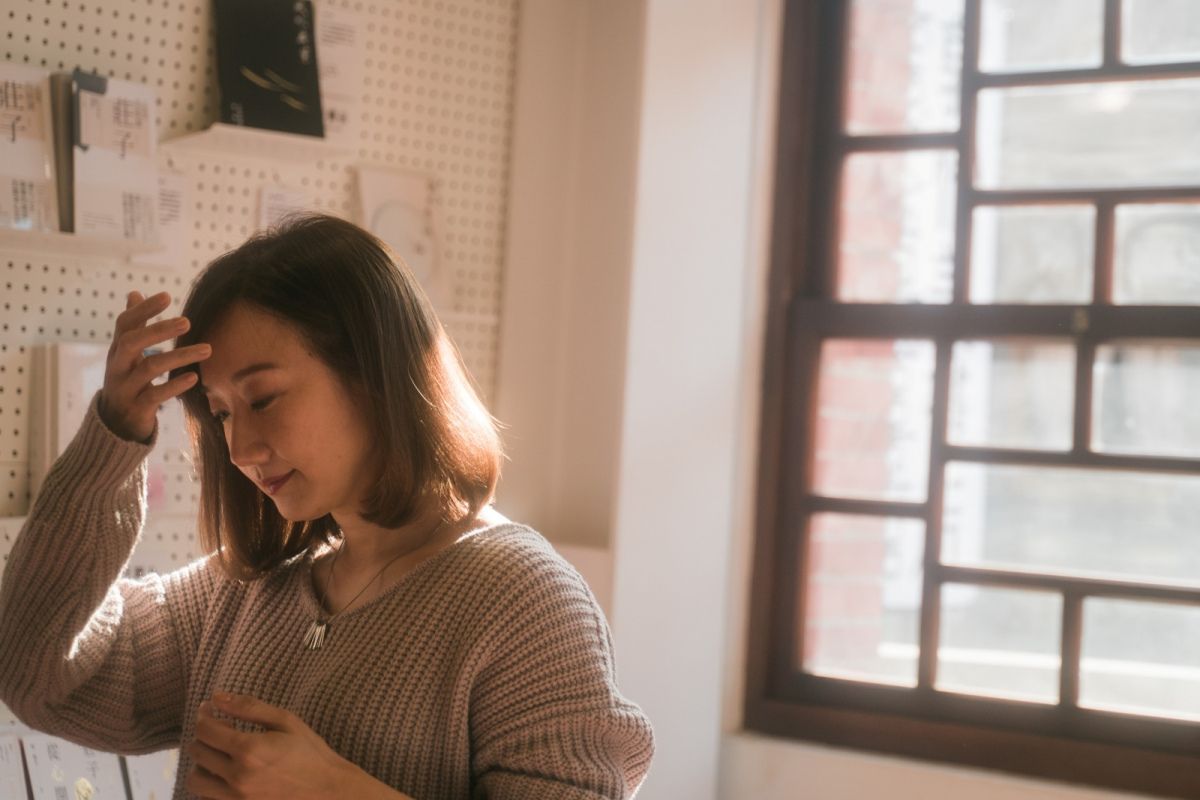
To put it bluntly, "Actually, 'hiding' itself is also a choice, what kind of things can I 'reveal'?" Huang Tingyu said. That actually means: what is the prose trying to say? What are you willing to say? For example, in "Invisibility" Series 2 "Ward", we cannot identify what the protagonist's illness is, and why he must be hospitalized for surgery. She didn't tell the readers afterwards, nor did she disclose it to her close friends and parents beforehand. In Huang Tingyu's original text, it is: "It's embarrassing to be the focus of naked pain."
Of course, readers can still see all kinds of clues through the text. After several detours, Huang Tingyu wrote the sense of space in the operating room and the physicality of the disease in a very three-dimensional way. As if the developer is slowly taking effect, the pain of the past, the difficulty of "holding your breath", and the boundaries in interpersonal relationships are slowly surfacing. Even, I can see how "I" chatted with my own sister before the operation, and even discussed the affairs of the afterlife half-jokingly and half-seriously-if there is an emergency, I always have to "explain" it. Personal laptops or diaries should be thrown away, what about those clothes or skin care products? And, where will these works that have been typed out word by word with painstaking efforts, "often vacillating between saying and not saying" be published? In the end, Huang Tingyu successfully brought this "Invisibility" to our eyes. The point is not to dispel, but to settle down, and it is also a tribute to the flesh and willpower. After all, “invisibility has to come back to the world,” she writes.
What would you want to do if you could disappear for a while without worrying about your moral obligations? Huang Tingyu laughed and said, "Does it sound like you're going to do something bad?" On the contrary, she didn't feel that she needed to "disappear" for too long, because all she had earned was quite enough. Hidden or explicit, a relatively good balance has been found. But, "If I could, I'd like to find a specialty dessert shop?" She replied playfully. Isn't the dessert cabinet full of chocolates of all kinds? I want to sneak a bite of each of them. The senses are very important, material enjoyment is the most real.
In a sense, this "Invisibility Art" carries Huang Tingyu's cultivation path, and at the same time, it seems to be the faint voice of her life. At the end of the interview, Huang Tingyu stood up. I suddenly saw the skirt she was wearing on her lower body, wrapped in a layer of elegant and long tulle. ● ( The original text was first published on Openbook official website on 2023-04-06)
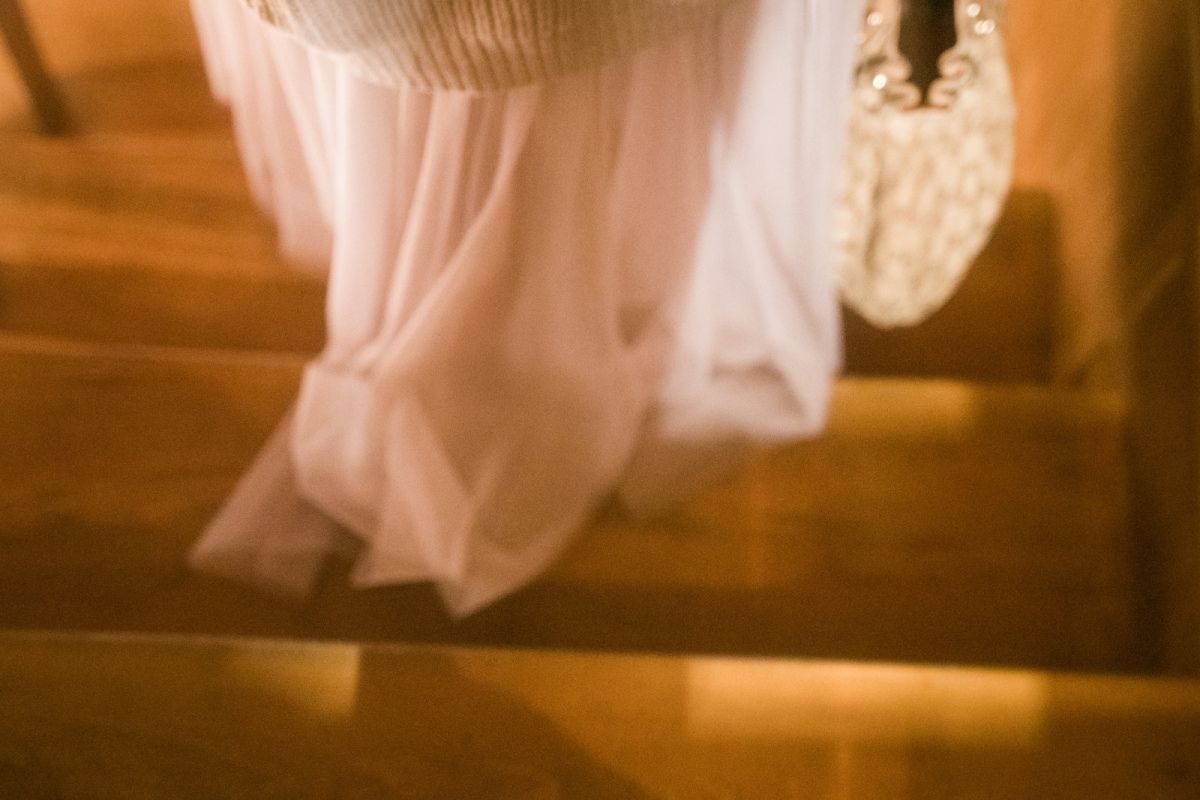
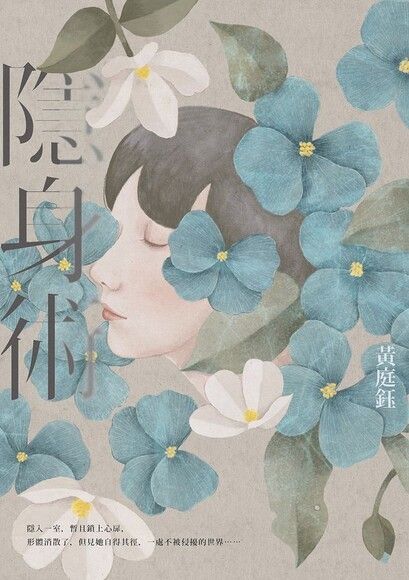
Invisibility <br class="smart">Author: Huang Tingyu Publisher: Youlu Culture 【 Introduction ➤ 】
About the author: Huang Tingyu <br class="smart">Winter Solstice was born in Tainan and grew up in Taichung. Doctor of Education, National Chengchi University. Currently teaching at Hsinchu Girls' High School. He has won Wu Zhuoliu Literary Award, Times Literary Award, Ministry of Education Literary Creation Award, Taichung Literature Award, Shungeng School Architecture Academic Research Award and other awards. Co-authored the reading books "One Hundred Ancient and Modern Joyful Reading" and "Ancient and Modern Joyful Reading Hotspots" with Xu Ting. Co-edited Xu Huizhi's anthology of poems and essays "Don't Walk In Docilely, That Night Is Sad" together with Chen Huihui. Articles appear in newspaper supplements and magazines. He is the author of collections of essays "Time Goes to Girls" and "Invisibility".
Like my work? Don't forget to support and clap, let me know that you are with me on the road of creation. Keep this enthusiasm together!





- Author
- More